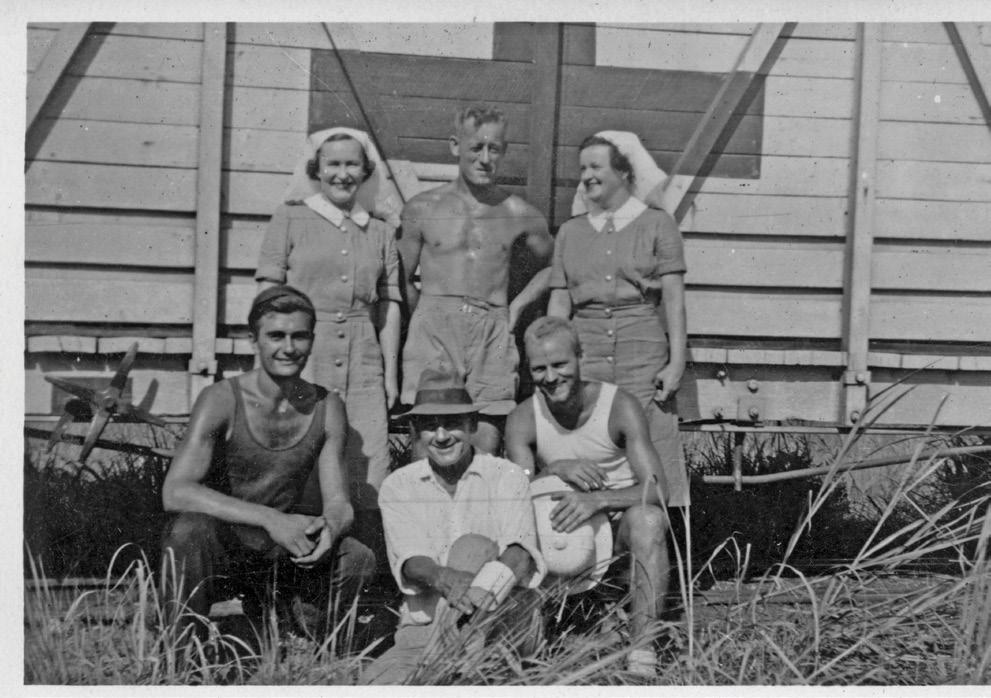
3 minute read
Principal’s Thoughts
The African proverb “It takes a village to raise a child” has never been more pertinent. The journey through childhood to becoming a young adult can be complicated and changeable. It is influenced by cultural norms and the zeitgeist of our times. We know that children learn to understand themselves through the ecology of influence that surrounds them, primarily driven by the relationships they develop as they mature. Families are children’s first and most influential teachers. As they grow, this extends to those adults and associations outside of the family who play important roles in their life. Teachers, coaches, family friends and peers form the village that surrounds a young person as they mature. We all play a role. Harvard University’s Centre for the Developing Child calls this an “environment of relationships”. The research tells us that a child’s healthy growth is dependent on the quality and reliability of this environment. Her network of relationships affects the development of brain architecture, providing the foundation for all future learning, social and emotional wellbeing and interpersonal skills. Her self-identity and personal agency grow from the lessons and messages she receives about who she is, who she can become and who she belongs to. Our girls come from a rich tapestry of family histories, cultures and lived experiences. Together we are united in a shared purpose; a commitment to a Wilderness education designed to foster in each child the educational and personal dispositions and capabilities to thrive. In recent months, the experience of many young women across our society has been revealed in the public domain. Shared stories of pain, gender-based violence, abuse and suffering in some of our nation’s most powerful institutions and workplaces have been exposed. However, this is not confined to the adult context. The testimonies of young women’s experiences while at school have been harrowing and have challenged the role of schools in providing timely and age-appropriate education about respectful relationships, sexual health and consent.
Young people need to be equipped with information and skills that will enable them to navigate all their relationships respectfully. We must have the courage at home and at school to have discussions with our children to ensure they are not only well informed but have an opportunity to raise questions and speak with us should they wish to do so. We know and appreciate that conversations about consent can be challenging for teachers, parents and girls. There is a complex interplay between age, readiness and need, but it is important to persist and for wiser adults to be accessible when children and young people have questions or concerns. While many young people use the internet to find answers to questions, they still report that school is one of their most trusted sources of information alongside their parents.
Advertisement

Our curriculum must be relevant for the children it serves. The focus cannot and should not be the same as it was in the past, but must reflect the current social challenges our young people face. The implementation of the Artemis program is central in our commitment to provide for each student her entitlement to develop the knowledge, skills and understanding that will position her to make informed, healthy and positive choices. This program will incorporate the relationships curriculum in a developmentally and contextually appropriate way. It will give her a forum to ask questions, to acquire knowledge, develop lifelong skills, and understand how her values strengthen her capacity and right to use her voice. While schools cannot, and should not, be solely responsible for teaching young people about consent and respectful relationships, we play a key role in shaping how young people understand and think about healthy relationships and grow as socially responsible, independent and resilient young adults. This requires us to work closely with our families to ensure our girls have access to the information they need so they can develop and practise those life skills that will protect and enable them to develop respectful and reciprocal connections with others. We recognise the importance of family in this journey. We know that when young people have a sense of belonging and feel safe, secure and supported, they can safely participate in a thoughtful and considered approach to relationships education. As we walk together, it is essential that, we understand and share our aspirations and priorities for our girls. The decisions we make have consequences and impact our girls long beyond their time at school. We take this responsibility seriously. All of us are united in placing the safety of our children as paramount. This is the role of the village.
Jane Danvers Principal










